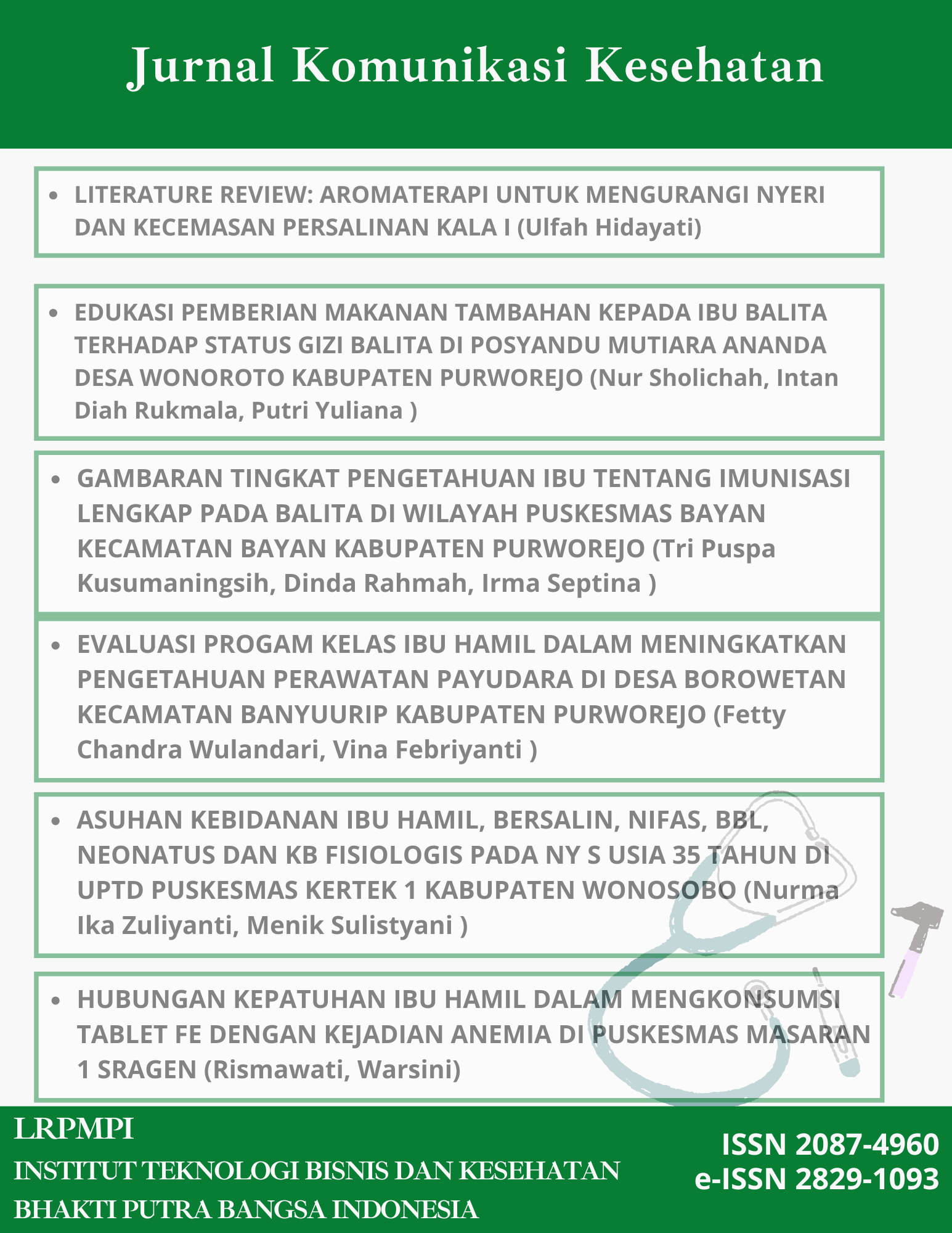GAMBARAN TINGKAT PENGETAHUAN IBU TENTANG IMUNISASI LENGKAP PADA BALITA DI WILAYAH PUSKESMAS BAYAN KECAMATAN BAYAN KABUPATEN PURWOREJO
DOI:
https://doi.org/10.56772/jkk.v16i1.443Keywords:
Level of knowledge, Complete immunization, ToddlersAbstract
WHO stated that in 2021, as many as 25 million children did not receive complete
immunization globally. This data represents 5.9 million more than in 2019 and the highest
number since 2009. Meanwhile, in Indonesia, the number of children who were not fully
immunized from 2017 to 2021 is 1,525,936 children (Ministry of Health, 2023). Based on
a preliminary study conducted from July to December 2024, there were 105 toddlers who
were immunized at the Bayan Health Center in Purworejo Regency. From interviews with
10 mothers of infants, 3 respondents were already aware of complete immunization for
toddlers, 2 respondents had some knowledge, and 5 respondents did not have enough
knowledge. The purpose of this study was to obtain an overview of the level of maternal
knowledge regarding complete immunization for toddlers (0-5 years) at the Bayan Health
Center in Bayan District, Purworejo Regency. This research method is descriptive, using
a cross-sectional approach. The population in this study consisted of mothers who had
toddlers aged 0-5 years (51 individuals), and the sample in the study was total sampling (51 respondents). The research data were processed using percentage techniques with
the help of SPSS 17, presented in the form of frequency distribution. The research was
conducted from June to December 2024. The study's findings indicated that a majority of
respondents had a good knowledge level regarding complete immunization for toddlers
(45.1%), while some had a sufficient knowledge level (39.2%) and a minority were
lacking (15.7%). The findings of this research indicate that the majority of participants
at Bayan Health Center, Purworejo Regency are aware of comprehensive immunization
for young children. All mothers with toddlers are anticipated to consistently seek
information regarding immunization and its application. Health workers consistently
enhance optimal immunization services within the community














